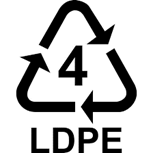Environmental
Reduce your impact on the Environment
At Plasmech, we engineer our products to minimise the environmental impact of the packaging we supply. We manufacture high strength films aimed at reducing packaging weight and thereby saving you money.
We make to measure for almost all our customers. Buying ‘off the shelf’ is almost always a compromise. The bag you buy is likely to be longer, wider and/or thicker than needed. This is a waste of your money and it is a waste of the planet’s resources. It is a waste of the space you need to store the excess material. It is also a waste of energy; every tonne manufactured consumes electricity and every journey the excess material takes costs more in fuel. We can help you reduce both your costs and your carbon footprint.
REDUCE YOUR CARBON FOOTPRINT CUT YOUR COSTS



Packaging consultancy
Our packaging specialists can identify opportunities to improve packaging efficiency and reduce overall packaging used. Material developments can offer opportunities to reduce film or bag thicknesses. Please contact us to find out more.
Recycling

All products we manufacture are 100% recyclable.
Recycled content

All of our products can potentially include recycled material. The type and amount that can be incorporated will depend upon the functionality of the end product. Currently there are no recycled polymers that are certified safe for use in food contact applications for polythene film.
Compostable
Traditionally these are bio-based materials as an alternative to polythene. There are a number of options available in terms of degradable or compostable films. This is an ever evolving market and new products are being trialled regularly. The most applicable solution will depend on the use of the product and the desired final result. If you are interested in these then please contact our sales team to discuss in more detail.
Bio-based polythene
Instead of fossil fuel this polythene is made from ethanol derived from sugar cane, a renewable raw material. During the growing process the cane captures and fixes CO2 from the atmosphere, helping to reduce greenhouse gases. The end product is exactly the same as traditional polythene and can therefore be used as a direct substitute.
